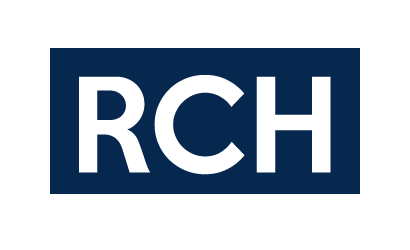INTERNET ADDICTION AND INTERACTION OF SOCIAL MEDIA DURING THE PANDEMIC
DOI:
https://doi.org/10.32813/2179-1120.2022.v15.n1.a913Keywords:
media sociais; adição; jovens adultos; media; digitalAbstract
This exploratory research has as its object of study the perceptions of young adults attending University Education in Portugal, about their practices of accessing and consuming of Internet and social media, especially during the COVID-19 pandemic, and the consequences of the permanent connection to these formats for the development of the risk of behavioral dependence. From a methodological point of view, questionnaire surveys were applied to a sample of 407 young university adults, with an average age of 19.6 years, attending public and private institutions. The results point to an increase in dependence on the Internet during confinement. More than half of the respondents consider that the Internet is essential at some times in their lives, in the same way that they confess that they feel some of the consequences of excessive use, such as addiction to social networking sites or sleep disturbances.
Metrics
References
Brooks, S. K., Webster, R. K., Smith, L. E., Woodland, L., Wessely, S., Greenberg, N., & Rubin, G. J. (2020). The psychological impact of quarantine and how to reduce it: Rapid review of the evidence. Lancet, 395(10227), 912–920.
Brunborg, G. S., Mentzoni, R. A., & Frøyland, L. R. (2014). Is video gaming, or video game addiction, associated with depression, academic achievement, heavy episodic drinking, or conduct problems? Journal of Behavioral Addictions, 3(1), 27-32.
Cauberghe, V., Wesenbeeck, I.W., De Jans, S., Hudders, L. & Ponnet., K. (2021). Cyberpsychology, Behavior, and Social Networking: 250-257.
Cellini N., Canale N., Mioni G. & Costa S. (2020). Changes in sleep pattern, sense of time and digital media use during COVID-19 lockdown in Italy. J Sleep Res., 29:e13074.
Chao, M., Xue, D., Liu, T., Yang, H. & Hall B.J. (2020). Media use and acute psychological outcomes during COVID-19 outbreak in China, Journal of Anxiety Disorders, 74 (102248).
Dias, P., Cadime, I., García del Castillo, J. A., Marzo, J. C., García del Castillo-López, A., & López Sánchez, C. (2020). Problematic Internet and Facebook Use and Online Gaming among University Students: An Exploratory Study. Psihologija, 53(4), 319–340. DOI: https://doi.org/10.2298/PSI190129012D.
Dias, P. C., Cadime, I., Castillo-López, A., García-Castillo, F., & García del Castillo, J.A. (2018). Uso abusivo de Facebook entre universitarios portugueses: aportes de la adaptación de la Bergen Facebook Addiction. Health and Addictions, 18(1), 131–139. DOI: 10.21134/haaj.v18i1.377.
Griffiths, M. D. (1995). Technological addictions. Paper presented at the Clinical Psychology Forum.
Griffiths, M. D., Davies, M., & Chappell, D. (2004). Demographic factors and playing variables in online computer gaming. CyberPsychology & Behavior, 7(4), 479-487.
King, D. L., Delfabbro, P. H., Griffiths, M. D., & Gradisar, M. (2012). Cognitive‐Behavioral Approaches to Outpatient Treatment of Internet Addiction in Children and Adolescents. Journal of Clinical Psychology, 68(11), 1185-1195.
Pontes, H. M., Patrão, I. M., & Griffiths, M. D. (2014). Portuguese validation of the Internet Addiction Test: An empirical study. Journal of Behavioral Addictions, 3(2), 107-114. DOI: 10.1556/JBA.3.2014.2.4
Taylor, S. (2019). The Psychology of Pandemics: Preparing for the Next Global Outbreak of Infectious Disease. Newcastle Upon Tyne: Cambridge Scholars Publishing.
United Nations. (2020). Policy Brief: Covid-19 and the need for action for mental health.
Wang, C., Pan, R., Wan, X., Tan, Y., Xu, L., Ho, C. S., & Ho, R. C. (2020). Immediate psychological responses and associated factors during the initial stage of the 2019 coronavirus disease (COVID-19) epidemic among the general population in china. International Journal of Environmental Research and Public Health, 17(5), 1729.
World Health Organization (2020). Mental health and psychosocial considerations during the COVID-19 outbreak. (No. WHO/2019-nCoV/ MentalHealth/2020.1).
Xiao C. (2020). A novel approach of consultation on 2019 novel coronavirus (COVID-19)-related psychological and mental problems: structured letter therapy. Psychiatry Investig. 17(2):175–176.
Young, K. (1998). Internet addiction: The emergence of a new clinical disorder. Cyberpsychology & Behavior, 1, 237–244. DOI: 10.1089/cpb.1998.1.237
Young, K. S. (1999). Internet addiction: symptoms, evaluation and treatment. Innovations in clinical practice: A source book, 17, 19-31.
Young, K. (2010). Internet addiction over the decade: A personal look back. World Psychiatry, 9(2), 91–91.
Downloads
Published
How to Cite
Issue
Section
License
Copyright (c) 2022 Human Sciences Journal - RCH

This work is licensed under a Creative Commons Attribution 4.0 International License.
The publications of the Human Sciences Journal are registered under the Creative Commons Attribution CC-BY license.
1. The contents of the manuscripts are the exclusive responsibility of their author.
2. It is allowed the total or partial reproduction of manuscripts published in the journal, provided that the source is cited.
3. When submitting their manuscript to the Journal, the authors certify that they are of their own authorship and unpublished (not published in any digital or printed media).
4. The copyright of the articles published in the Journal are of the author, with first publication rights reserved for this journal.
5. For disclosure purposes, the Journal may replicate the works published in this journal in other media, such as social networks (Facebook, Academia.Edu, etc.).
6. The Journal is of public access, therefore, the authors who submit manuscripts agree that they are of free use.
7. In case of any illegality, fraud, or other attitude that puts in doubt the honesty of the publication, especially the practice of plagiarism, the manuscript will be automatically rejected.
8. If the manuscript has already been published, it will be immediately removed from the base of the Journal, its citation linked to the Journal will be prohibited and the cancellation of the referred publication shall be reported in the next issue of the one in which the article was published. In case of the procedure for the withdrawal of the paper the authors will be informed beforehand, being guaranteed the right to a broad defense.
9. The personal data provided by the authors will be used exclusively for the services provided by this publication and will not be made available for other purposes or to third parties.





